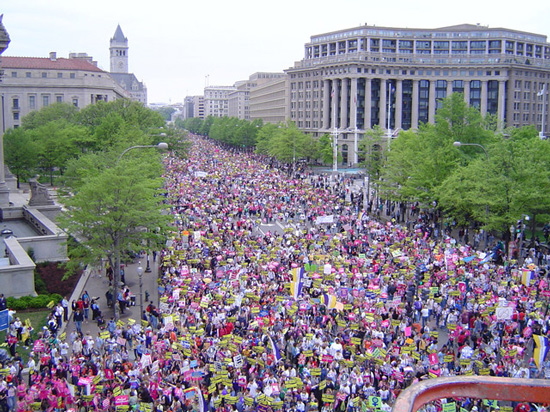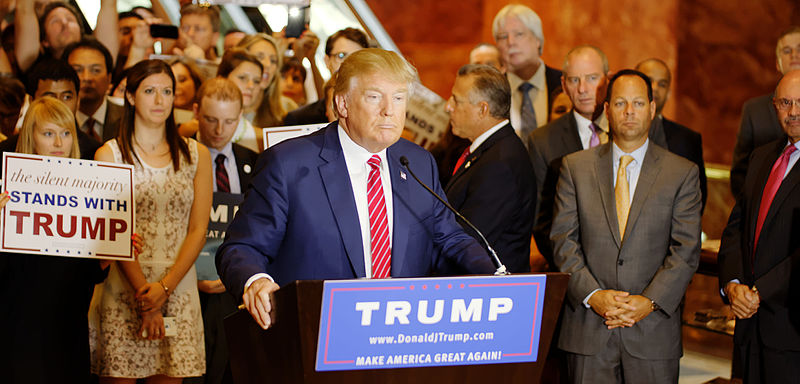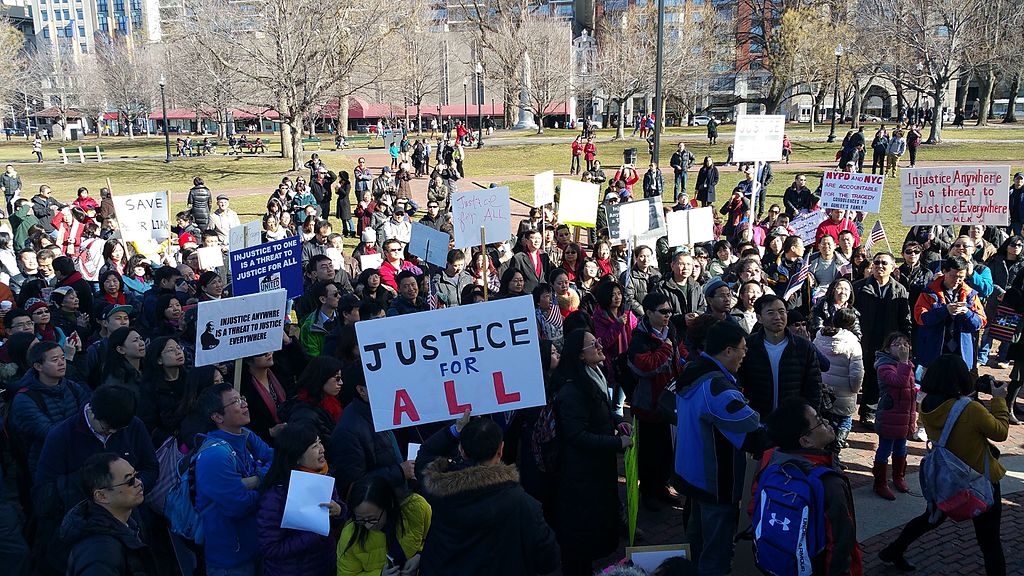Power defines nearly all aspects of American society, whether covert or obvious. It impacts the way in which people behave, shapes workplace environments, and determines relationships between people by granting some power over others who have no choice but to be subordinate. Historical patterns of domination in this country have put men at the top of the hierarchical ladder. The argument about power dynamics can easily explain the massive number of unreported sexual assaults in America.
Traditionally male traits such as strength and aggression are seen as necessary and valuable for the function of society. These historical patterns of male-dominance have resulted in the prevalence of toxic masculinity. This allows for young boys to be socialized to act in a more “masculine” way, with an emphasis on emotional suppression and a strong ego. From childhood through adulthood, men are convinced that they must behave in a traditionally male fashion. Being that men dominate virtually all career fields and aspects of society, these hyper-masculine traits have become the norm and are viewed as normal and expected. The historical oppression of women has pegged traditionally “feminine” traits, such as emotionality or empathy, as unimportant and even detrimental to society. The socialization of women into feminine roles perpetuates these traits and the inferiority associated with them. Many use these unjustified claims to discredit women executives or to justify the lack of representation of women in high-level positions. For reasons such as this, men have traditionally had the upper hand in many areas of society. This has created the opinion, specifically in America, that the actions of men should not be questioned and are simply a result of natural differences in behavior.
Sexual assault should not be seen as isolated acts of abuse against women, but rather as a piece of a much larger framework that continually oppresses and disadvantages women in all areas of American society. Women have never been awarded the same value that men have been given. Throughout history, domestic work has been designated to women because they have traditionally been seen as the “weaker” sex. As society developed in America, it became the norm that women would raise children and handle domestic functions such as housework, while men would handle more demanding labor. Early American society that relied on farming and industrial work allowed for the perpetuation of the idea that women could not successfully perform the same tasks as men because of alleged inferior physical and mental capabilities [1]. This unjustified association resulted in the development of male-dominated and female-dominated jobs, with the majority of jobs for women receiving lesser pay and being viewed as less vital to society. These traditional factors have modernized in the form of the gender pay gap. Research into virtually every career field has lead to the conclusion that “male-dominated jobs earn more than female-dominated ones, even when they are at similar skill levels.”[2] Upon consideration of the tradition of female oppression in America, it becomes clear as to why sexual assault has been able to become so widespread throughout society.
The workplace represents an aspect of American society that is primarily male-dominated and can be a key to patriarchal oppression. It is no surprise that workplace harassment is one of the most widespread forms of harassment nationwide. This is largely the result of men in positions of power taking advantage of women who cannot fight back without the threat of severe repercussions. These men are known to threaten their victims’ job security should they choose to come forward with their stories and accusations, which results in fear and underreporting of workplace violations. Often times, women are too afraid of the possibility of being fired or of being deemed untruthful. Studies have shown that the number of women who experience some form of backlash following an accusation is as high as two-thirds.[3] The pressures associated with workplace harassment have the power to discourage any victim from coming forward. Empirical evidence grounds theories on workplace power dynamics in reality, revealing the truths about workplace harassment.
A study done by USA Today shows that approximately 80 percent of all sexual assaults remain unreported.[4] This is both a chilling and incredibly revealing statistic. It presents a prominent fact with a corresponding question, the fact being that nearly all sexual assaults that are committed will never reach the courts, letting countless abusers go unpunished and unnoticed. The question is one that I’m sure anyone who reads such a statistic will find themselves wondering: Why? Why is it that women do not report these heinous acts to be properly dealt with by the law, even though they recognize the injustice of their treatment? Why do these women avoid confronting their perpetrators? Most notably, why is it that so many women are deciding to come forward now?
Sexual assault has come to the forefront of public discussion as women and men all over the world participated in the empowering and inclusive #MeToo movement that surfaced on Twitter in early October of 2017. Since its introduction, the #MeToo hashtag has seen over 1.7 million tweets from users in over 85 different countries.[5] This movement has transformed into a real-world call for victims to seek justice from their abusers and join forces to put an end to sexual misconduct of all forms and in all industries.
An ABC News and Washington Post poll sheds some light on why this movement was able to transcend the boundaries of social media and turn into a battle cry for victims everywhere. The poll showed that 54 percent of women claim to have been the victim of “unwanted and inappropriate sexual advances.”[6] The results of this poll show that not only have over half of American women experienced such traumatic events throughout their lifetimes, but also that this statistic has been largely overlooked, specifically by other men. Though the #MeToo movement has been extremely successful in initiating necessary and impactful conversations surrounding the topic of sexual misconduct and workplace harassment, it has also shed light on the decades of harassment that have been swept under the rug and considered to be commonplace in American society. This movement gave many people the ability to reclaim their voice and use it to expose their abusers’ actions.
The #MeToo campaign has made the general public more aware of abuses that occur across all areas of society, even in our government. Prominent political figures such as Al Franken have been denounced and stripped of their titles because of the surfacing of accusations against them. Countless numbers of Representatives and Senators are accused of sexual misconduct, proving that this movement is far from over. Men in power are now feeling an insecurity that they have never before had to endure as they wonder whether or not they will soon be faced with a set of allegations against themselves or whether their own victims will soon come forward and share their stories. In this way, the movement plays a prominent role in the future of politics in this country, having massive implications for candidates and employees in every area of government.
As far as the #MeToo movement has taken us as a nation, we still have a long way to go before all accusations are taken seriously and treated as such. The recent Senate election in Alabama demonstrates a scenario in which sexual misconduct allegations were overlooked by nearly half of the state’s population. Roy Moore, the Republican candidate in the race, was accused of sexual misconduct by seven different women, almost all of them being minors at the time the misconduct took place.[7] Although Moore did lose the election, Doug Jones’s slim majority consisted of mainly women of color. White men, who make up the majority of the population of voters, as well as the majority of sexual offenders, still showed their support for Roy Moore even after the allegations against him were presented. Along these same lines, President Donald Trump himself has accumulated over a dozen sexual misconduct allegations throughout the course of his lifetime. Both of these men were in positions of power during the time of their actions and remain in such positions even after these accusations have been brought to the forefront of discussion, marking that we, as Americans, must still fight for justice in these situations.
People are beginning to act against sexual misconduct through the power of the polls. Now is a time where people are being held accountable for their actions and being questioned about allegations that previously would have been disregarded. Though the subject matter of the #MeToo movement may seem like a shocking new discovery to some, women have been aware of these injustices for most of their lives. Sexual assault, and many other issues regarding women’s health and safety, are traditionally seen as taboo because of the power dynamics in America that function to place women’s issues in a place of lesser importance than other domestic concerns. The strength of the movement and the power of women joining together to fight against sexual assault has shifted the traditional power dynamic and allowed for more women to be in control. According to Toni Van Pelt, president of the National Association of Women, “If women are in a position of authority, they will help stop the submission of other women.”[8] This statement holds true to the impact of the movement, which has proven that women united under a similar cause truly can change the framework of an issue.
The #MeToo movement provides a platform for those who have been silenced to come forward in unity, without the fear that they will be further silenced or disregarded as not being truthful. The movement provides the strength in numbers dynamic that is vital for women to feel comfortable with sharing their experiences. Women are now able to break free from the shackles of those in positions of power and any other abuser attempting to suppress them.
We, as a society, must stand in solidarity with all of those brave people who choose to come forward with their experiences.
[1] “Women’s History in America,” Women’s International Center (1994), http://www.wic.org/misc/history.htm
[2] Luc Schuster, “#MeToo, the Gender Pay Gap, and Power Dynamics in the American Workplace,” Boston Indicators (January 29, 2018), http://www.bostonindicators.org/article-pages/2018/january/gender-pay-gap
[5] Andrea Park, “#MeToo reaches 85 countries with 1.7M tweets,” CBS News (October 24, 2017), https://www.cbsnews.com/news/metoo-reaches-85-countries-with-1-7-million-tweets/.
[6] Claire Zillman, “A New Poll on Sexual Harassment Suggests Why ‘Me Too’ Went So Insanely Viral,” Fortune (October 17, 2017),
[3] Claire Cain Miller, “It’s Not Just Fox: Why Women Don’t Report Sexual Harassment,” The New York Times (April 10, 2017), https://www.nytimes.com/2017/04/10/upshot/its-not-just-fox-why-women-dont-report-sexual-harassment.html.http://fortune.com/2017/10/17/me-too-hashtag-sexual-harassment-at-work-stats/.
[4] Tony Gonzalez, “Study: Sexual assaults greatly underreported,” USA Today (November 19, 2013), https://www.usatoday.com/story/news/nation/2013/11/19/study-sexual-assaults-greatly-underreported-/3648197/.
[5] Andrea Park, “#MeToo reaches 85 countries with 1.7M tweets,” CBS News (October 24, 2017), https://www.cbsnews.com/news/metoo-reaches-85-countries-with-1-7-million-tweets/.
[6] Claire Zillman, “A New Poll on Sexual Harassment Suggests Why ‘Me Too’ Went So Insanely Viral,” Fortune (October 17, 2017), http://fortune.com/2017/10/17/me-too-hashtag-sexual-harassment-at-work-stats/
[7] Phillip Bump, “Timeline: The accusations against Roy Moore,” The Washington Post (November 16, 2017), https://www.washingtonpost.com/news/politics/wp/2017/11/16/timeline-the-accusations-against-roy-moore/?utm_term=.edb1c975d4ef.
[8] Sandee LaMotte, “How #MeToo could move from social campaign to social change,” CNN (November 9, 2017), https://www.cnn.com/2017/10/30/health/metoo-legacy/index.html.



